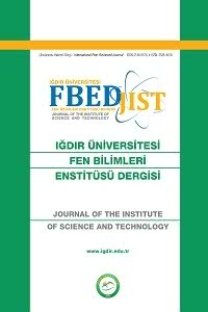Tek Hücre Proteinlerinin İnsan ve Hayvan Beslemede Kullanımı
Alg, bakteri, amino asidi, mantar, maya, tek hücre proteini
Single Cell Proteins for Human and Animal Nutrition
Algae, bacteria, amino acid, fungi, yeast, single cell protein,
___
- Adedayo MR, Ajiboye EA, Akintunde JK, Odaibo A, 2011. Single cell proteins: As nutritional enhancer. Advances in Applied Science Research, 2 (5): 396 - 409.
- Ashok RS, Nigam P, Vanete T, Luciana PS, 2000. Bio resource technology. J. Am. Sci., 16: 8 - 35.
- Becker EW, 2007. Micro-algae as a source of protein. Biotechnology Advances, 25: 207 - 210.
- Bhalla TC, Sharma NN, Sharma M, 2007. Production of metabolites, industrial enzymes, amino acids, organic acids, antibiotics, vitamins and single cell proteins. J. Environ. Issues, 6: 34 - 78.
- Bilgrami KS, Pandey AK, 1992. Introduction to Biotechnology. First Edition, CBS Publishers and Distributors, Delhi-110032 (India), p: 159 - 160.
- Burgents JE, Burnett KG, Burnett LE, 2004. Disease resistance of Pacific White shrimp, Litopenaeus vannamei,following the dietary administration of a yeast culture food supplement. Aquacult. J. Microbiol., 231: 1- 8.
- Curran PJ, Dungan JL, HL Gholz, 1990. Exploring the relationship between reflectance red edge and chlorophyll content in slash pine. Tree Physiol. 7: 33 - 48.
- Çalışkaner Ş, Ceylan N, Konca Y, Demirel R, Çördük M, Milli Ü, 1998. Etil alkol vasatında üretilen tek hücre proteini (Eprin) üzerinde biyolojik bir araştırma. Türk Tarım ve Ormancılık Dergisi, 22 (3): 299 - 304.
- Çalışkaner Ş, Konca Y, Ceylan N, Çördük M, Demirel R, Ceyhan K, Mamak M, 1999. Sıvı parafin vasatında geliştirilmiş tek hücre proteini (Paprin) üzerinde biyolojik bir araştırma. Türk Tarım ve Ormancılık Dergisi, 23 (1): 125 - 131.
- Han YW, Duhlap CE, Callihan CD, 1971. Single cell protein from cellulosic wastes. Food Technol. 25: 130 - 154.
- Jhojaosadati SA, Rasoul K, Abbas J, Hamid RS, 1999. Bioconversion of molasses stillage to protein as an economic treatment of this effluent. Resources conservation and recycling, 27 (1-2): 125 - 138.
- Kurbanoğlu EB, 2001. Production of single cell protein from ram horn hydrolysate. Turk J. Biol. 25: 371 - 377.
- Mahajan A, Dua S, 1995. A perspective on biotechnological potential. J. Food Sci. Technol, 32: 162 – 165.
- Miller BM, Litsky W, 1976. Single cell protein in microbiology. McGraw-Hill Book Company, 408 p.
- Nasseri AT, Rasoul-Amini S, Morowvat MH, Ghasemi Y, 2011. Single cell protein: production and process. American Journal of Food Technology, 6 (2): 103 - 116.
- Oliva-Teles A, Gonçalves P, 2001. Aquaculture enhancement. J. Chem. Eng., 202: 269 - 278.
- Osho A,1995. Production of metabolites, industrial enzymes, amino acids, vitamins, single cell protein. J. Res., 6: 521 - 529.
- Patel GS,1995. The DNA- protein cross: A method for detecting specific DNA- protein complex in crude mixture. Ind. J. Agri. Res., 3: 114 - 134.
- Rasoul-Amini S, Ghasemi Y, Morowvat MH, Mohagheghzadeh A, 2009. PCR amplification of 18S rRNA, Single cell protein production and fatty acid evaluation of some naturally isolated microalgae. Food Chemistry 116 (1): 129 - 136.
- Reed G, Nagodawithana T, 1995. Biotechnology enzymes, biomass, food and feed, Bibliographic Citation, 9: 168 - 215.
- Rumsey GL, Hughes SG, Kinsella JL, 2007. Use of dietary yeast Saccharomyces cerevisiae nitrogen by lake trout. J. Word Aquac. Soc. 21: 2005 - 2009.
- Shahzad MA, Rajoka MI, 2011. Single cell protein production from Aspergillus terreus and Its evaluation in broiler chick International Journal of Bioscience, Biochemistry and Bioinformatics, 1 (2): 137 - 141.
- Srivastava, ML. 2008. Fermentation technology. Oxford, Alpha Science International, p: 391.
- Srividya AR, Vishnuvarthan VJ, Murugappan M, Prajakt Gopal Dahake, 2013. Single cell protein - a review. International Jurnal of Pharmaceutical Research Scholar. 2 : 472 - 485.
- Varavinit S, Srithongkum P, De-Eknamkul C, Assavanig A, Charoensiri K, 1996. Production of single cell protein from cassava starch in air-lift fermenter by Cephalosporium eichhorniae. Food Technol. Biotechnol., 48: 379 - 382.
- Zubi W, 2005. Production of single cell protein from base hydrolyzed of date extract by- product by the fungus Fusarium graminearum. M.Sc.Thesis, Garyounis University, Benghazi. 19: 167 - 225.
- ISSN: 2146-0574
- Yayın Aralığı: 4
- Başlangıç: 2011
- Yayıncı: -
Beton Kaplama Kalınlığına Etki Eden Parametrelerin Parametrik Olarak İncelenmesi
Aydın KICI, Mesut TİĞDEMİR, Şengül Figen KALYONCUOĞLU
Iğdır İlinin Meyvecilik Potansiyeli ve İl Ekonomisine Katkısı
Mikdat ŞİMŞEK, Ersin GÜLSOY, Köksal KARADAŞ
Oksidatif DNA Hasarına Karşı Punica granatum ’un Koruyucu Etkisi
Çileklerde Bor Elementinin Önemi, Taşınma Mekanizması, ve Çilek Tarımında Bor Kullanımı
Mehmet Ali SARIDAŞ, Sevgi Paydaş KARGI
Kent Parklarındaki Gürültünün Değerlendirilmesi: Hüdavendigar Parkı Örneği
Melike Yalili KILIÇ, Merve Nur ABUŞ
Tek Hücre Proteinlerinin İnsan ve Hayvan Beslemede Kullanımı
Ramazan DEMİREL, Dilek Şentürk DEMİREL
Yapı Bilgi Modellerinde Mekansal Verilerin Rolü
Ömer AKIN, Burak MERT, Onur EROĞLU, Murat ARSLAN, Dursun Zafer ŞEKER, Hande DEMİREL
